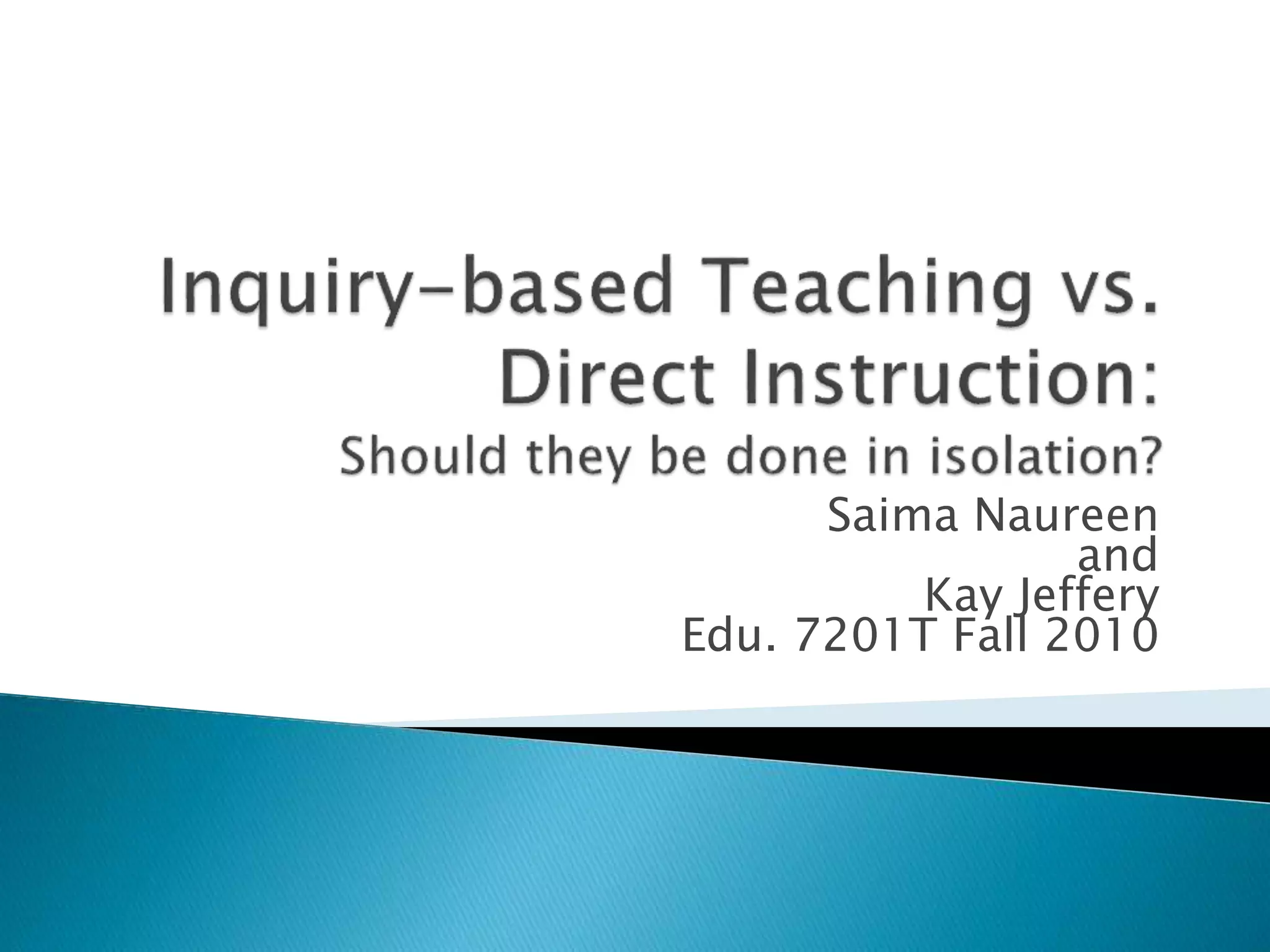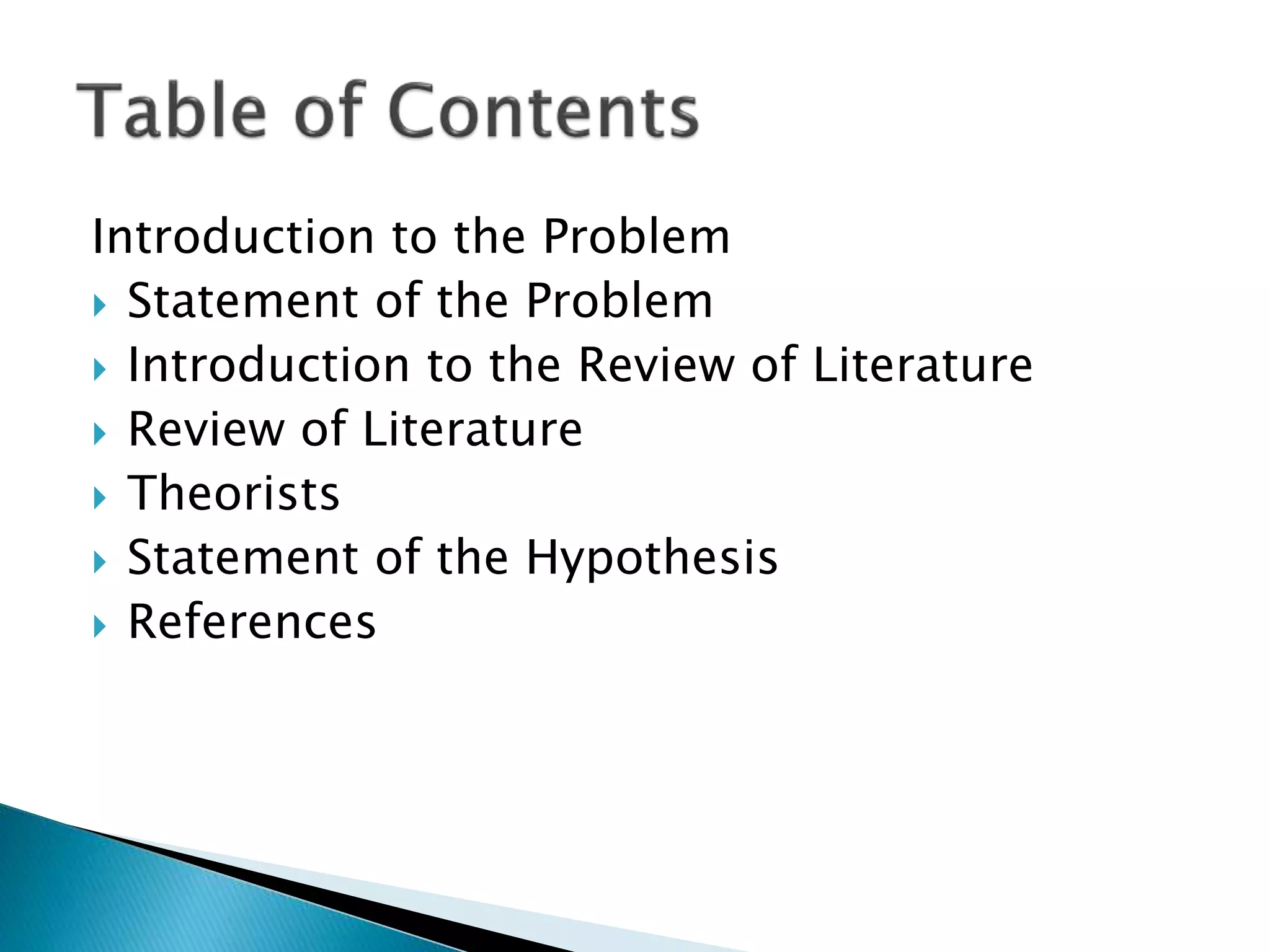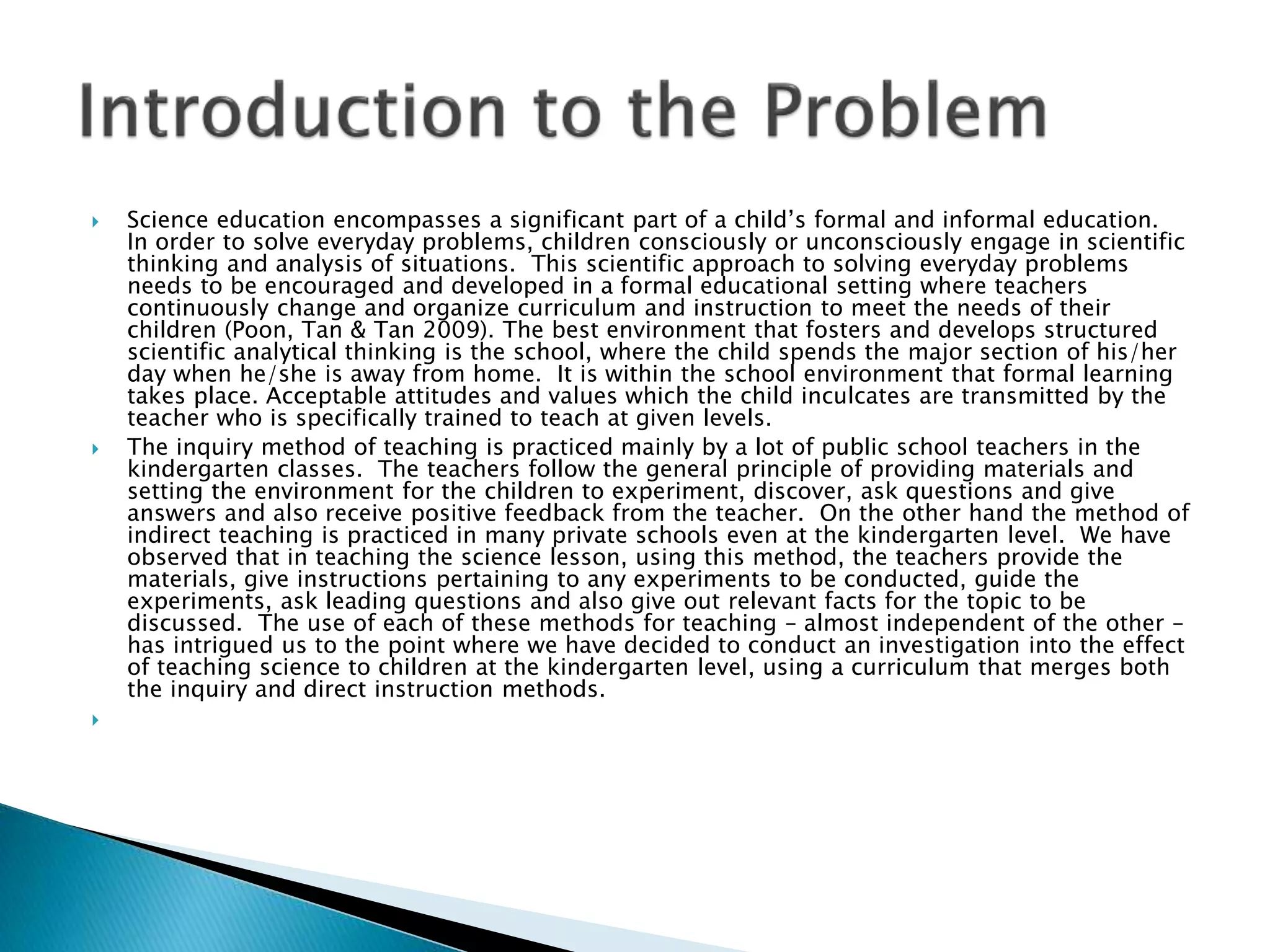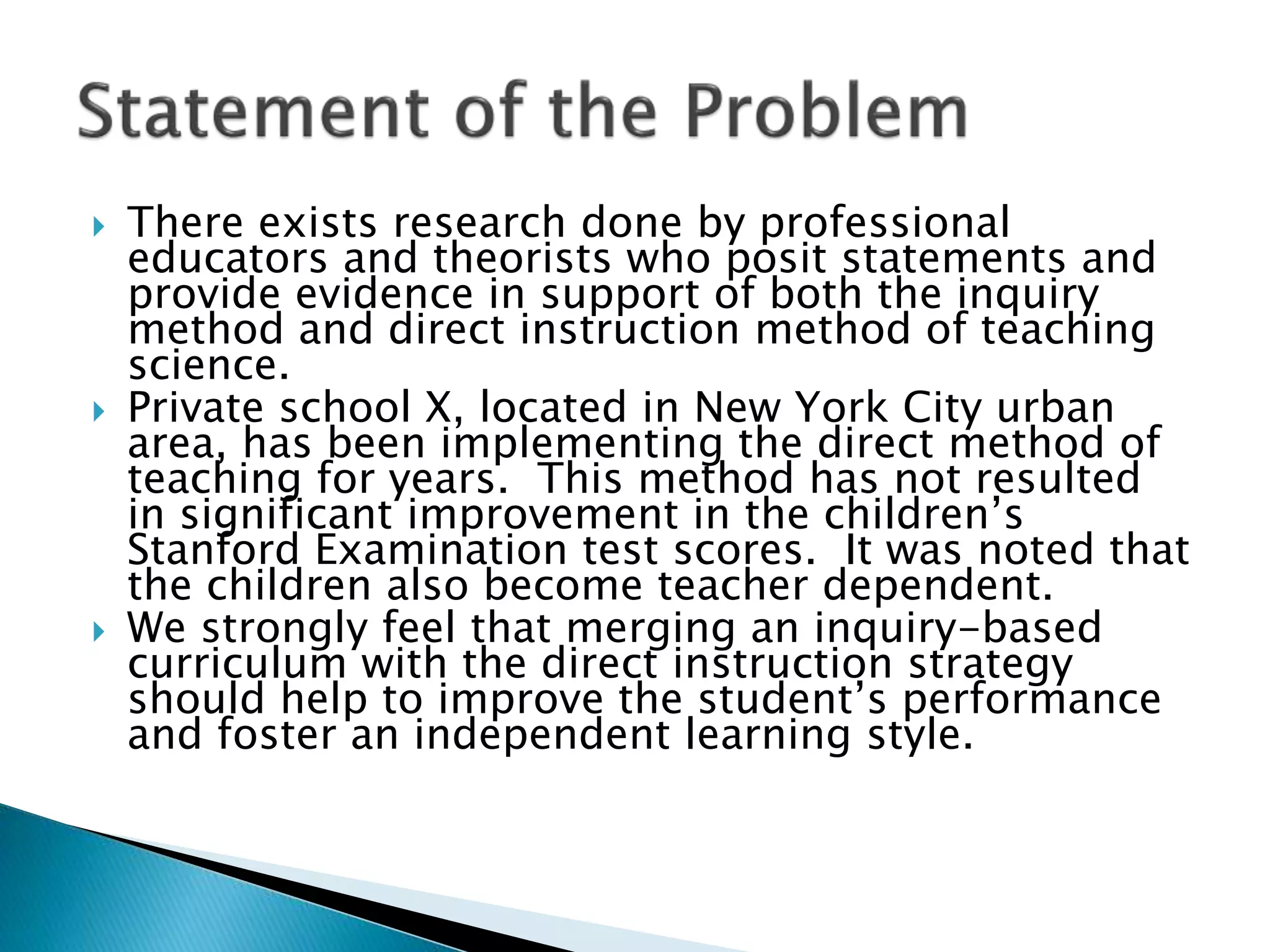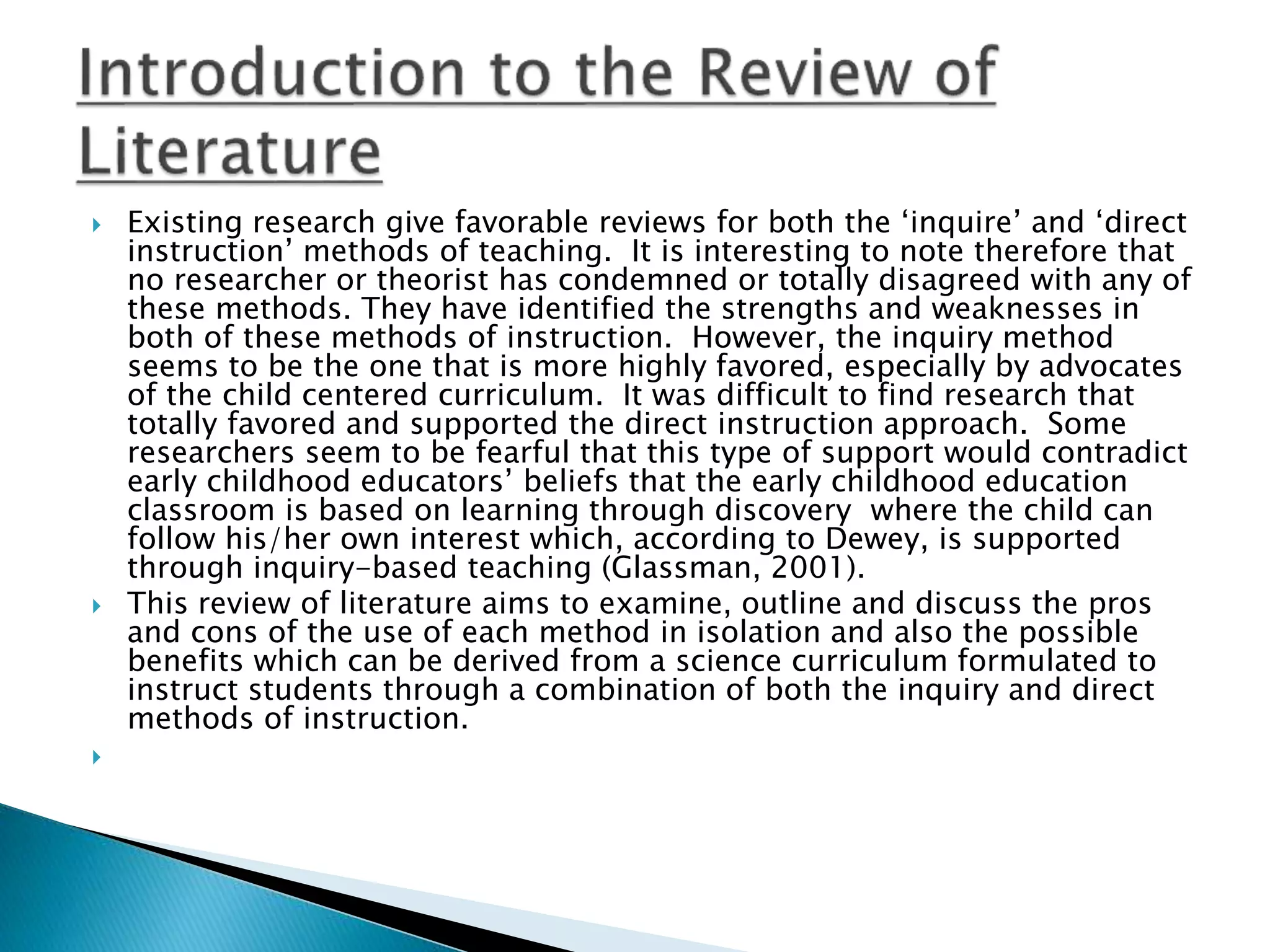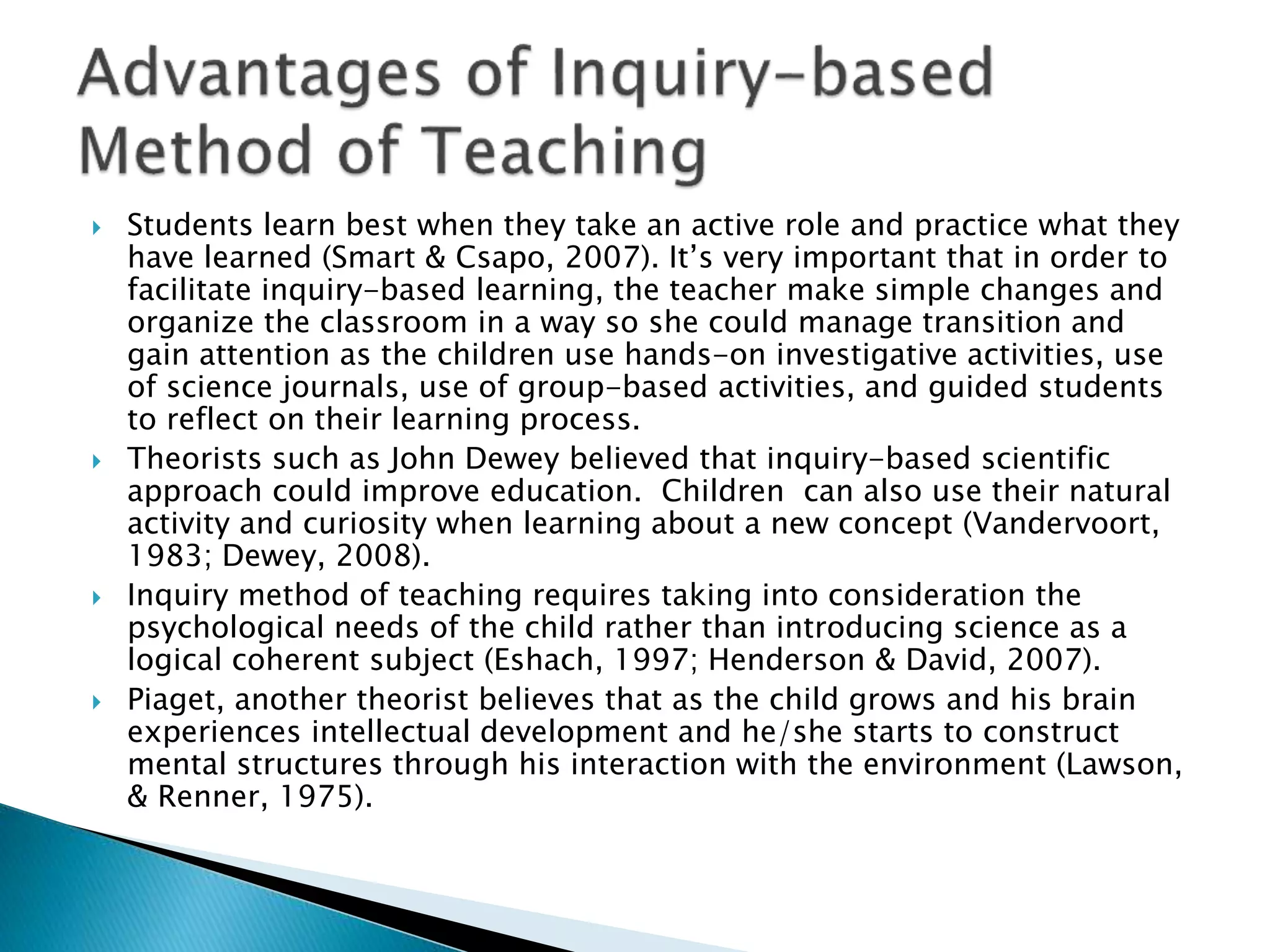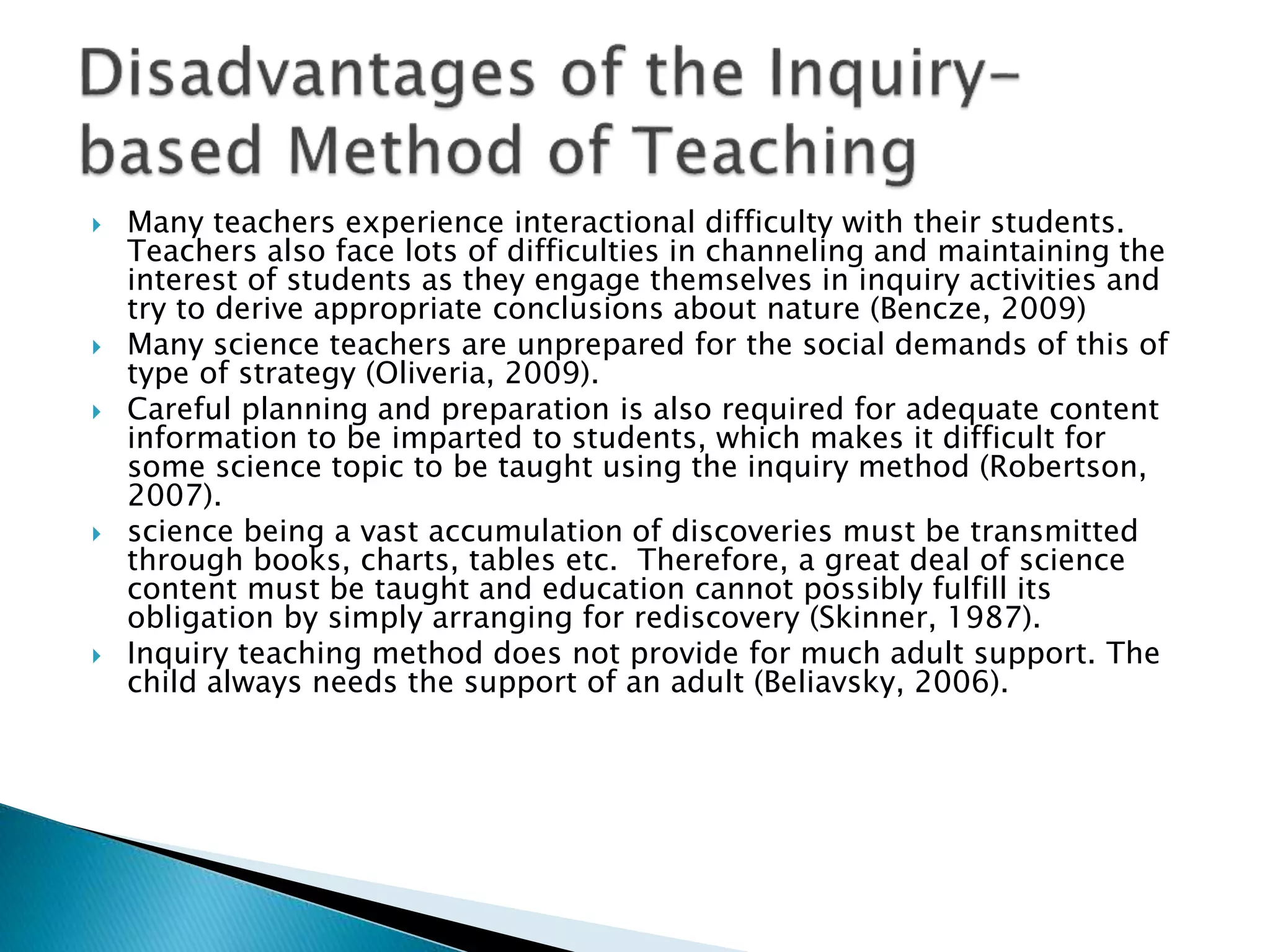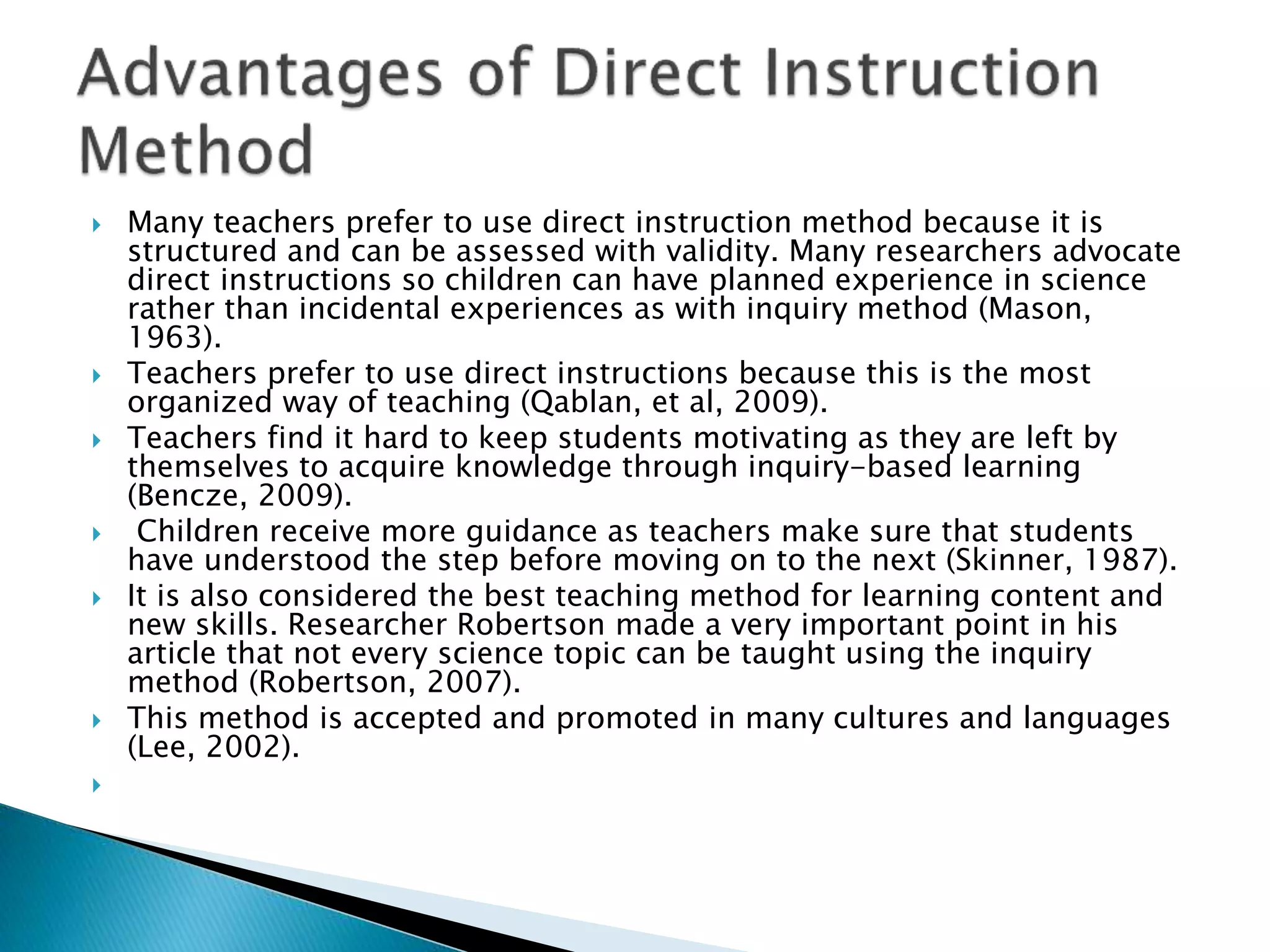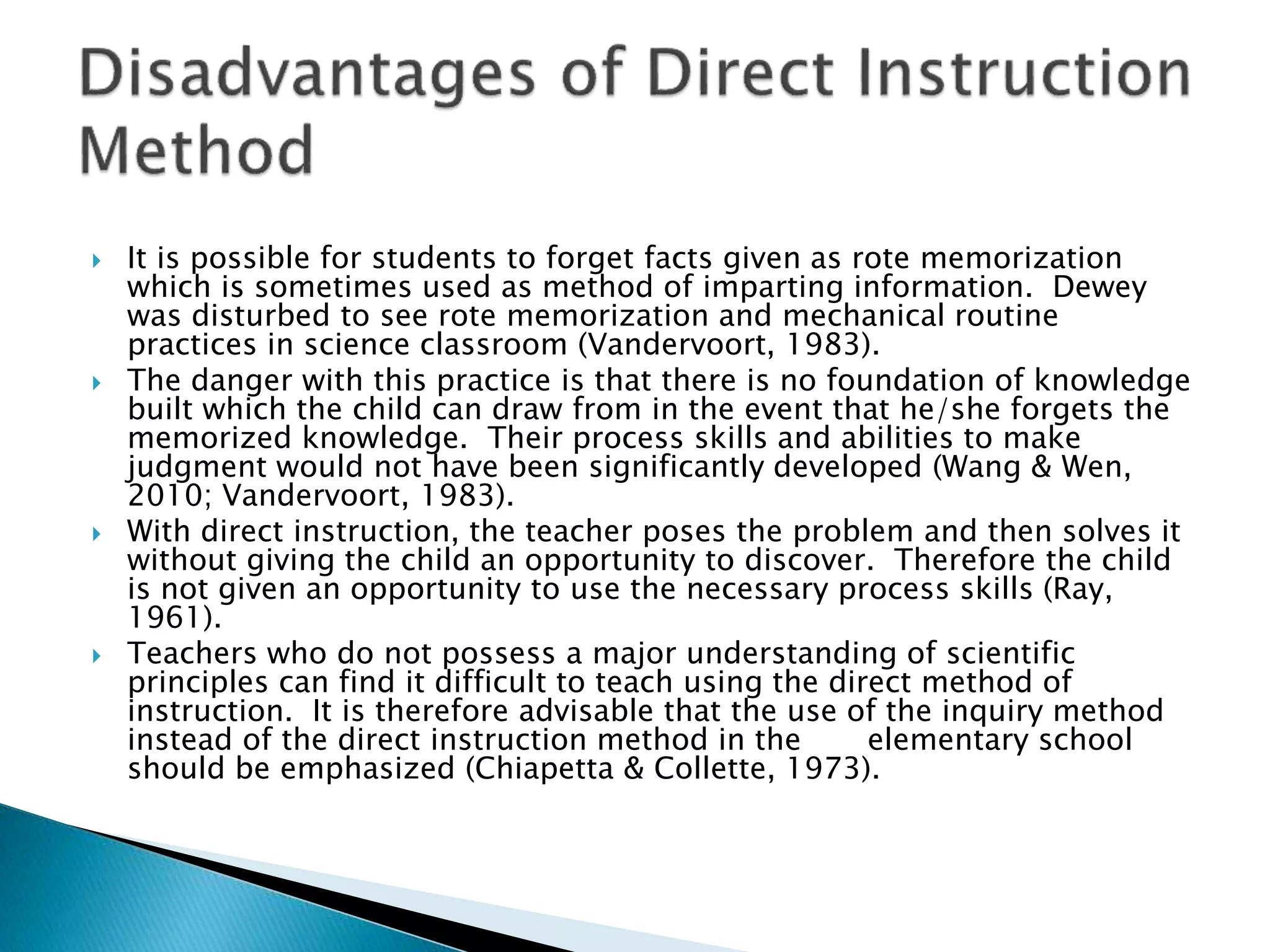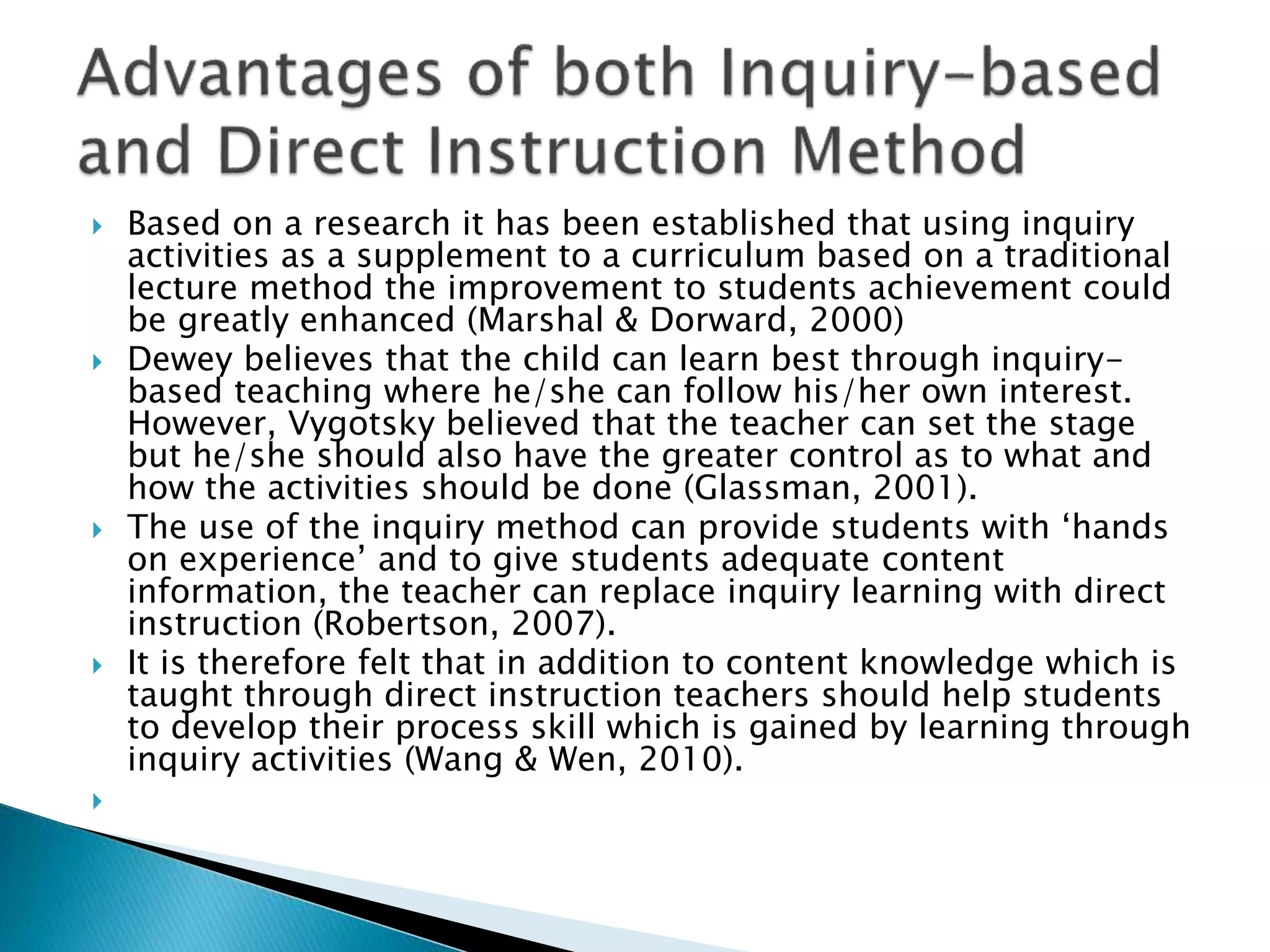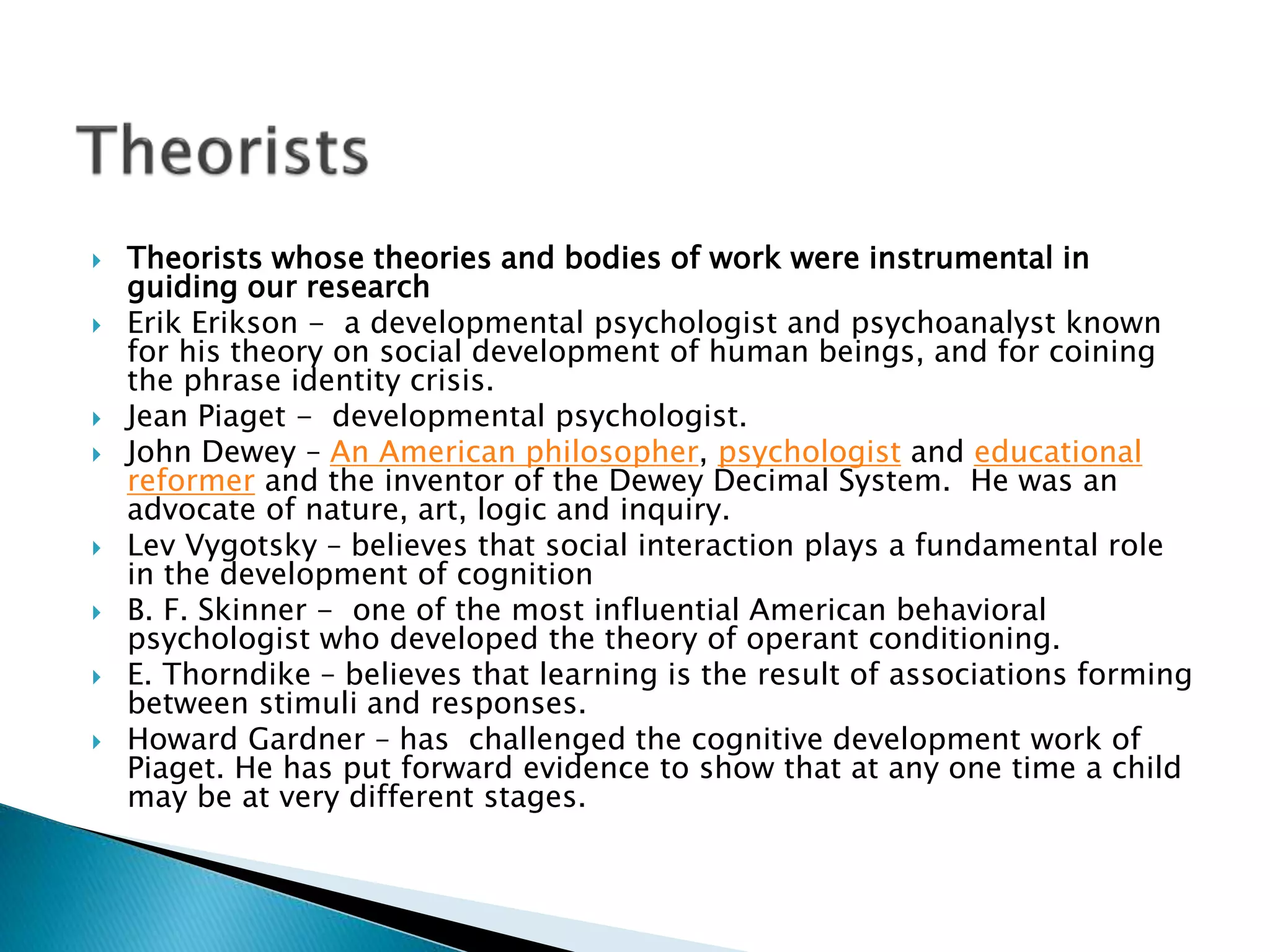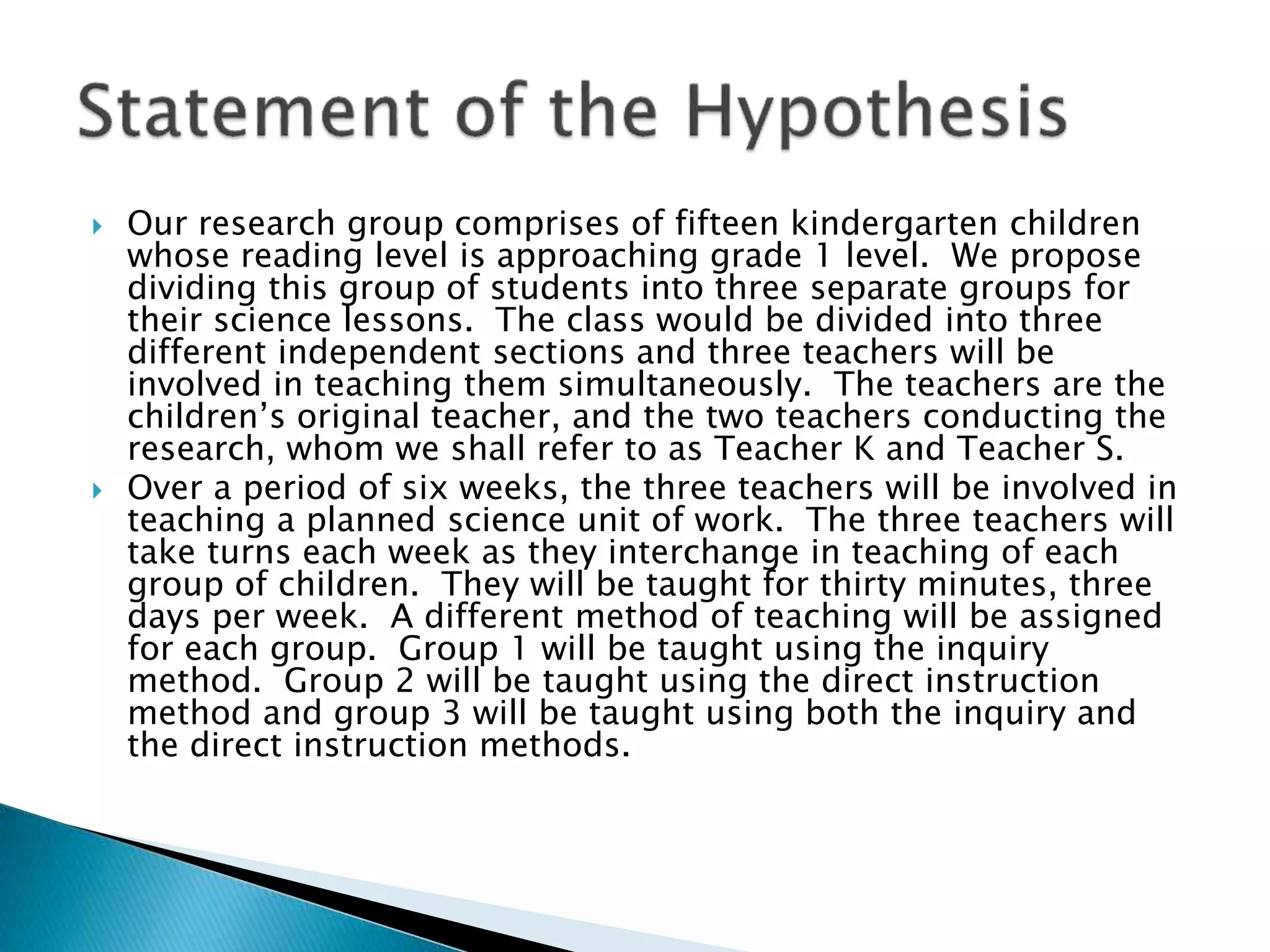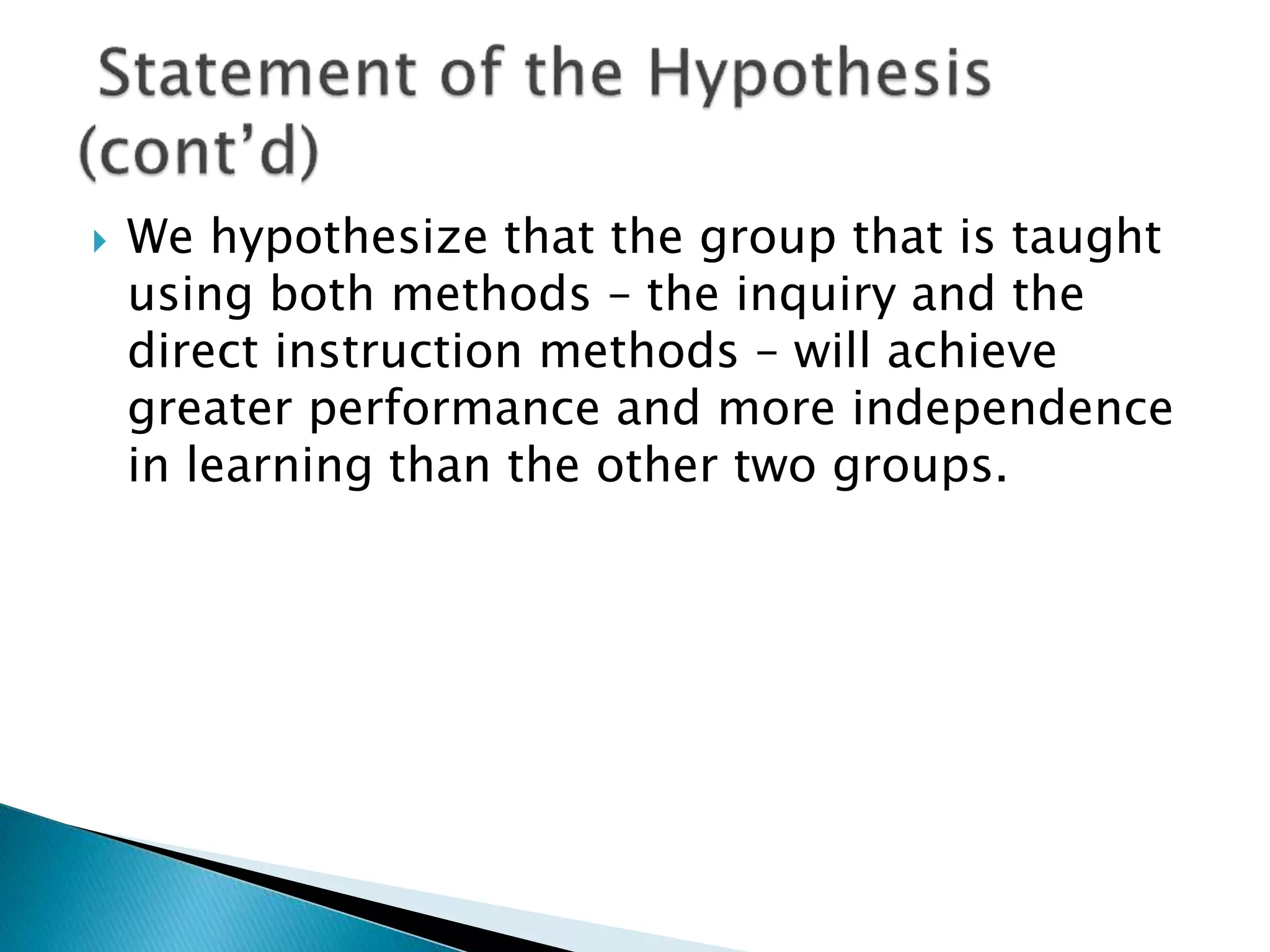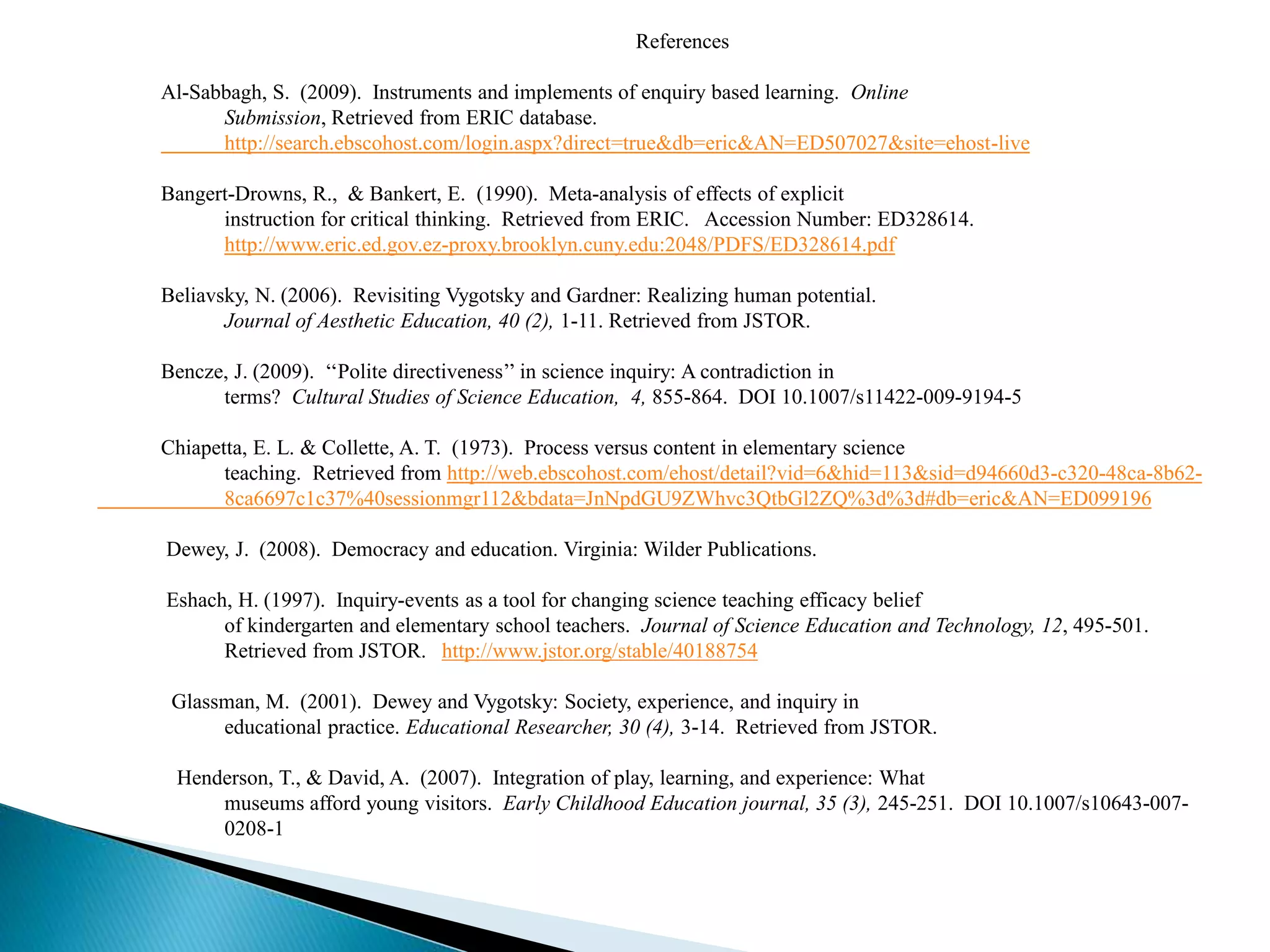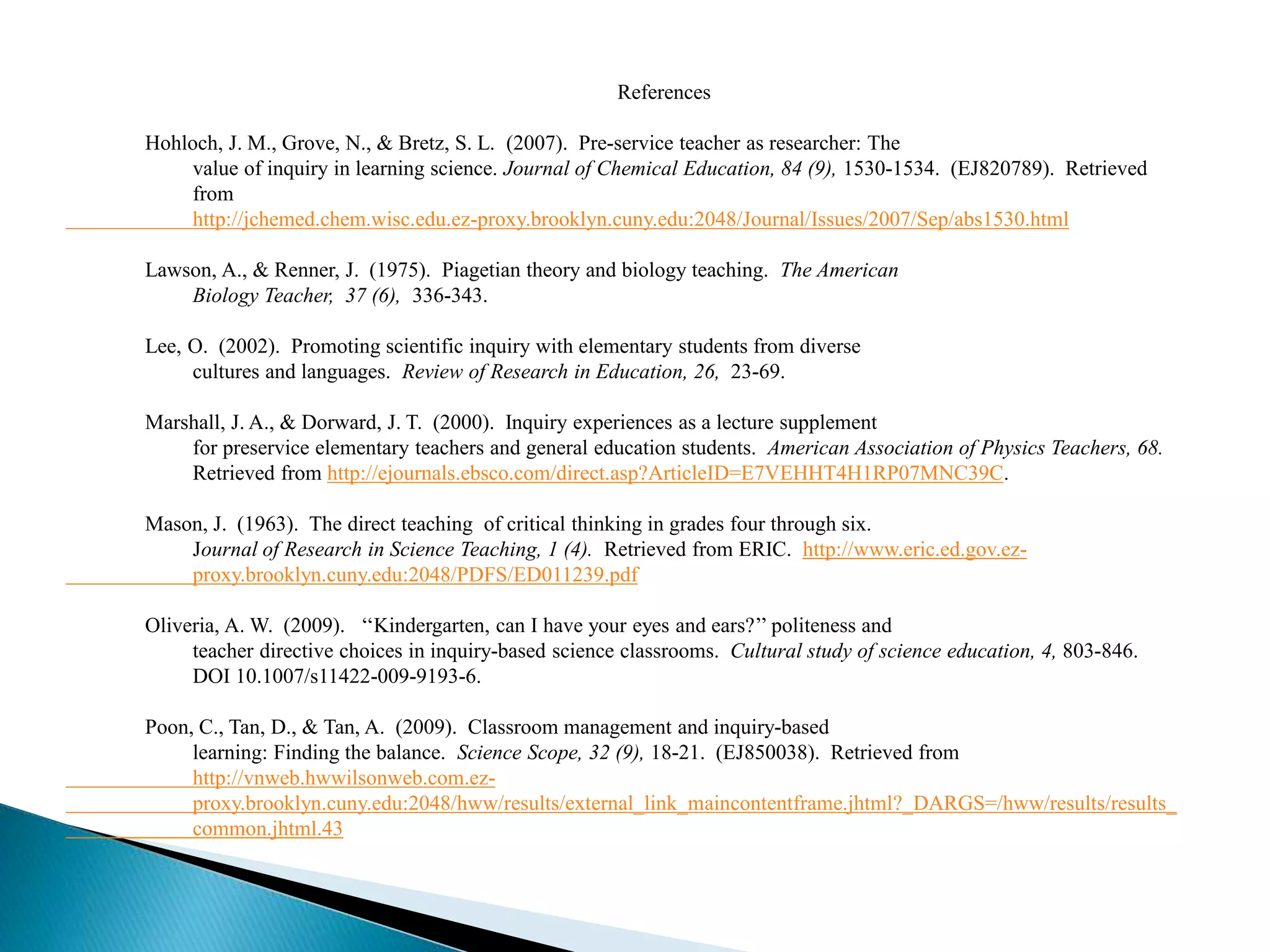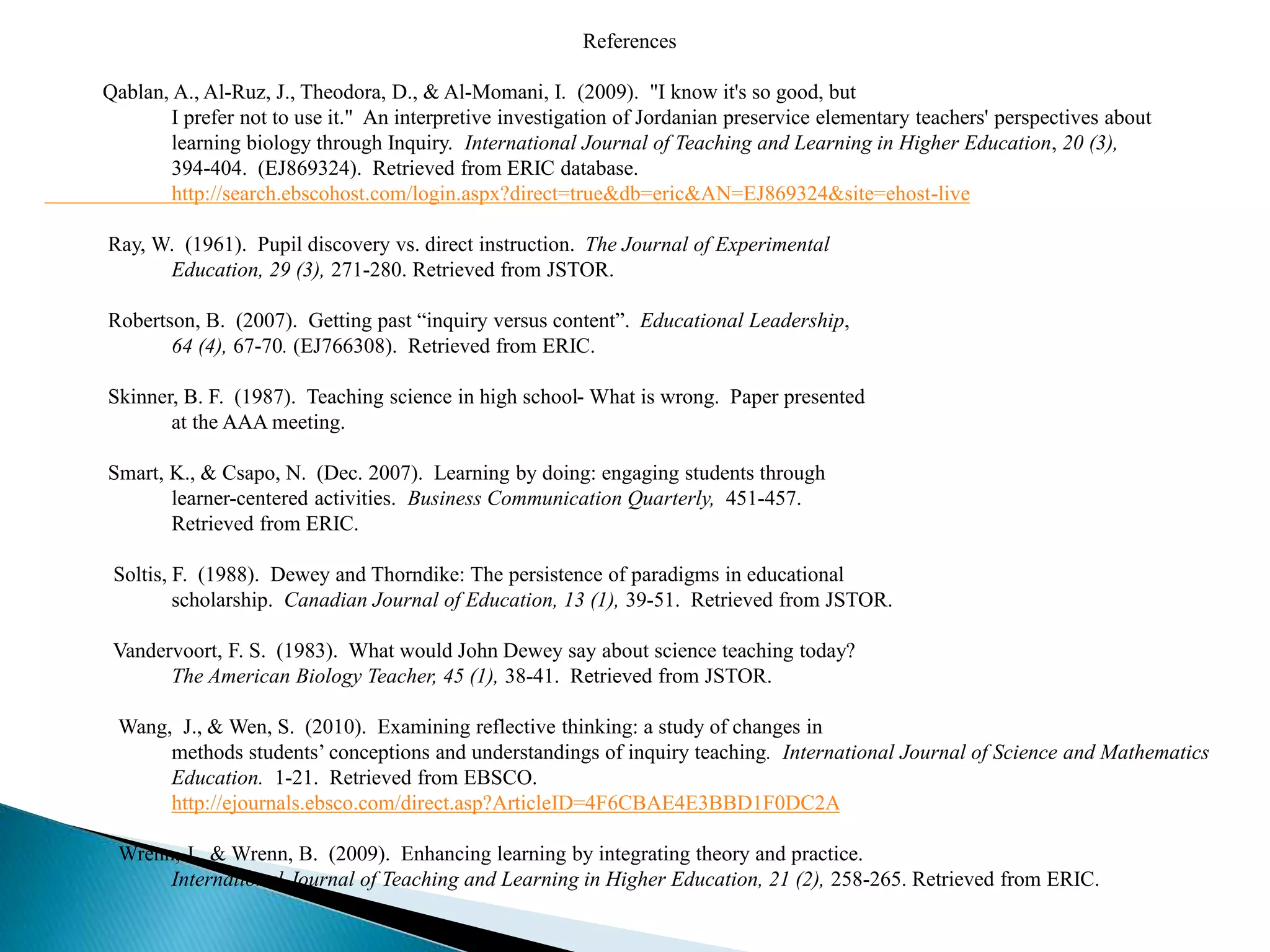This document discusses research on the inquiry method versus direct instruction method of teaching science. It provides background on the problem, a literature review on the benefits and drawbacks of each method, and influential learning theorists such as Dewey and Vygotsky. The authors hypothesize that combining inquiry and direct instruction into an integrated curriculum will improve student performance and independence over using either method alone. They plan to test this with three kindergarten groups, each taught science using a different method, over six weeks.
